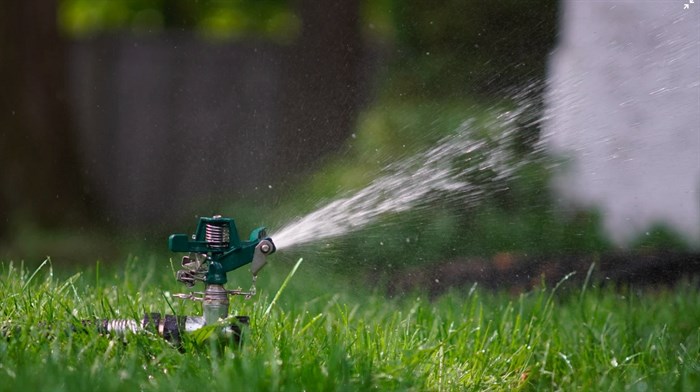
Image Credit: Unsplash/Paul Moody
August 08, 2021 - 8:00 AM
While it may be tempting to put a sprinkler on the roof or lawns before fleeing wildfires under an evacuation order, that’s not necessarily a good idea.
Depending on where the sprinklers are situated, they can actually damage the home.
They can also drain vital water reservoirs needed for crucial firefighting efforts.
“The best bet is to leave and let the professionals take care of your house,” Wayne Carson told iNFOnews.ca. “They’re trained to do this. They have tons of equipment there and have a really good shot at getting you back in your home. Let them do it.”
Carson is the director for the Central Okanagan West rural district, where many of his constituents along Westside Road are under evacuation alerts or orders. But, he’s more than a local politician. He’s also a former chief of the North Westside Fire Rescue Department.
He recalls a wildfire in 1998 that forced the evacuation of the Fintry delta.
“Everyone put a sprinkler on their roof and left and within half an hour, we had no water,” he said. “They drained the reservoir. It’s so important that the fire departments and forestry have that water.”
If people leave their homes with sprinklers on, fire crews could shut the water off at the curb.
“As a resident, you don’t own that water,” Carson said. “As soon as there’s an emergency declared, the water and the water system belongs to the fire department. If you decide to set up your own individual organization to protect your home, you are on your own and you’re not going to be allowed to use the water.”
Houses are also designed to take water coming down as rain so, if sprinklers are set to run continually spraying water upwards, that will damage the house, Carson said.
Sprinklers on the roofs of houses should be OK, as far as damage goes.
“it’s just like it’s raining for days on end,” Travis Pfefferle, president of Roof Doctor in Kelowna, said. “As long as the gutters are able to handle the water and not back up and push the edges up a bit, it should be okay.”
That’s, of course, if the fire department doesn’t shut the water off first.
That doesn’t mean homeowners in threatened areas shouldn’t use sprinklers as one of the tools to protect their homes, along with other fire prevention efforts.
“If sprinklers are used respectfully and properly you can save your home with them,” Carson said. “I don’t know of a structure that has been lost that has been properly sprinkled and managed well.”
He recommended running the sprinkler for 30 to 45 minutes to wet things down then turn it on again every two to three hours for 15 to 20 minutes.
That protects the home and conserves water, which is even more vitally important in upland areas that rely on electric pumps to refill reservoirs. The electricity is often cut off when wildfires approach. That means firefighters only have what’s left in the reservoir for their use or what can be hauled in.
Of course, there’s many other things that need to be done when evacuating a home threatened by wildfire.
Everyone in any area at risk should have grab-and-go bags packed well in advance.
Emergency Management B.C. recommends, if an alert is issued, that patio furniture, cushions and door mats be moved indoors and flammable curtains be removed from windows.
Fill large containers with water, whether that be a swimming pool, hot tub or garbage cans, and hook up garden hoses for firefighters to use, if necessary.
Other key points are to make sure house numbers are visible to emergency personnel and that garage door openers are disconnected so the doors can be raised by hand if the power goes out.
When an order comes down, close all the doors and windows on the way out and turn interior and exterior lights on so the house can be seen by firefighters at night.
Natural gas should not be shut off unless there is a leak. FortisBC will turn off the main line if necessary.
Some key tips when going home after an evacuation are to check food that may have been spoiled, take photos of what is discarded for insurance purposes and wait for clearance to drink the water.
For more information on sprinkler use, go here.
The province’s Wildfire Preparedness Guide is here.
More information on what to do when returning home can be found here.
To contact a reporter for this story, email Rob Munro or call 250-808-0143 or email the editor. You can also submit photos, videos or news tips to the newsroom and be entered to win a monthly prize draw.
We welcome your comments and opinions on our stories but play nice. We won't censor or delete comments unless they contain off-topic statements or links, unnecessary vulgarity, false facts, spam or obviously fake profiles. If you have any concerns about what you see in comments, email the editor in the link above.
News from © iNFOnews, 2021